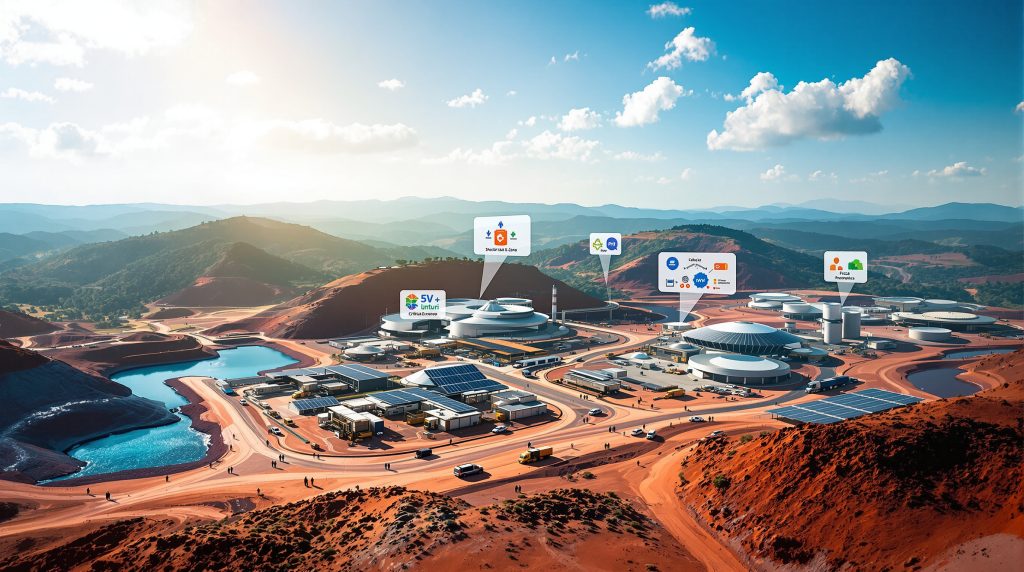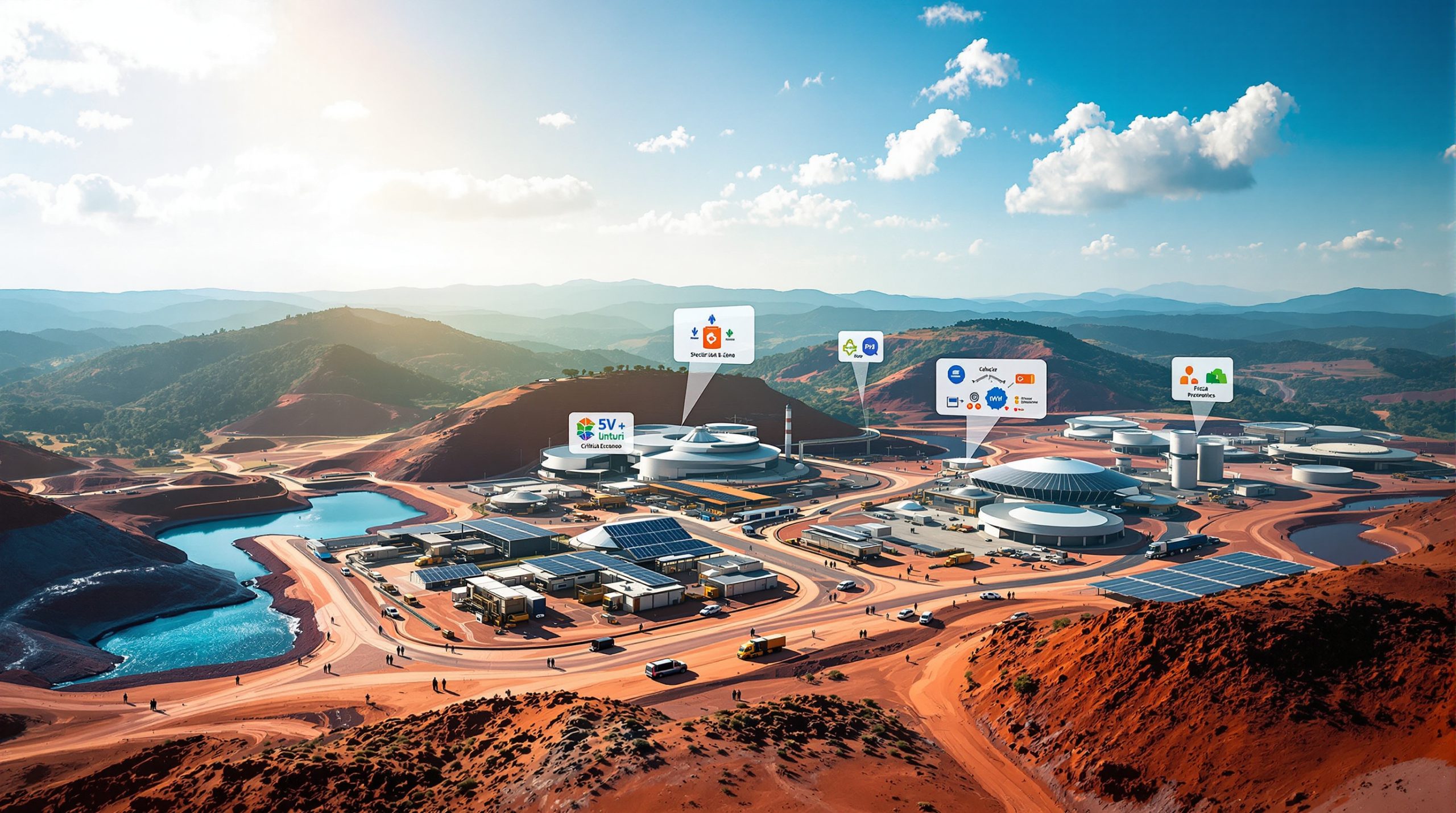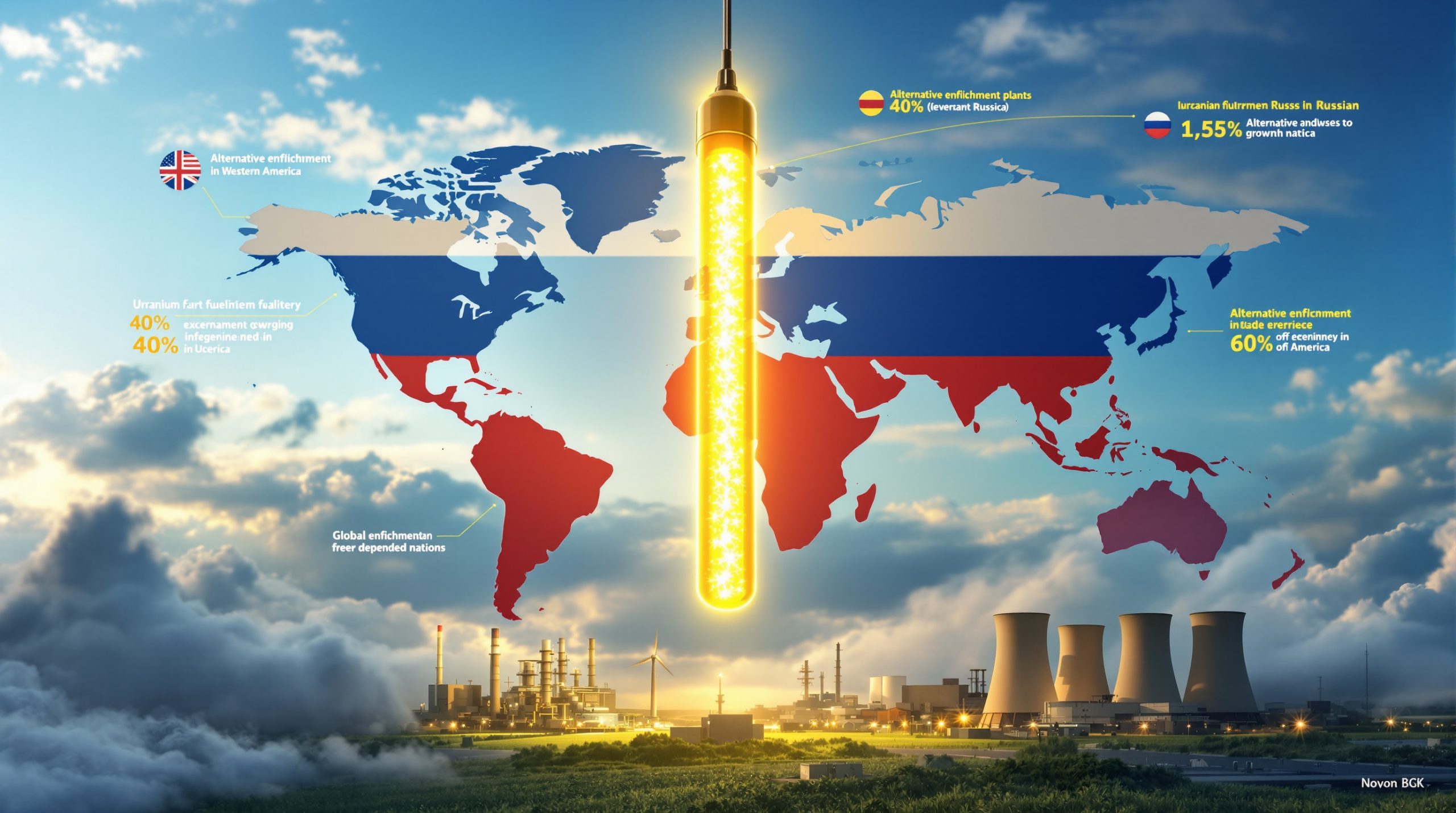DRC-Africa Battery Metals Forum: Shaping the Future of Critical Minerals
The DRC-Africa Battery Metals Forum (DBM) has established itself as a strategic platform bringing together key stakeholders in Africa's battery metals industry. Now in its third year, this collaborative event has evolved significantly, positioning discussions at the heart of the Democratic Republic of Congo's mining belt. The forum serves as a crucial meeting point for government officials, mining companies, researchers, and investors addressing both challenges and opportunities in developing Africa's critical minerals sector.
According to Audrey Bading Mve, Stakeholder & Programme Director for the Natural Resources Portfolio at VUKA Group, the forum's core mission focuses on transforming natural resources into "industries of the future" through collaboration between government and private sector entities.
What is the DRC-Africa Battery Metals Forum?
The DRC-Africa Battery Metals Forum represents a specialized industry gathering focused specifically on battery metals and their associated value chains. Unlike broader mining conferences, DBM concentrates on facilitating dialogue between government officials, industry leaders, and technical experts with a particular emphasis on sustainable development and local value addition.
Originally launched in Kinshasa, the forum has strategically relocated to Kolwezi, bringing discussions directly to the heart of the DRC's mining operations. This move reflects the organizers' commitment to grounding conversations in the practical realities of the mining sector.
The event's structure includes focused discussions and specialized roundtables designed to address specific industry challenges. This format allows for more substantive exploration of issues than typical conference presentations, creating opportunities for meaningful collaboration.
Why is the DRC Critical to Global Battery Metal Supply?
The Democratic Republic of Congo holds a pivotal position in the global battery metals landscape, particularly for minerals essential to the energy transition for minerals. While the country is widely known for its cobalt reserves, its mineral wealth extends significantly further.
Cobalt Dominance: The DRC contains approximately 70% of global cobalt reserves, making it the undisputed center of production for this crucial battery component. This dominance gives the country substantial influence over global supply chains for electric vehicles and energy storage systems.
Copper Resources: Beyond cobalt, the DRC possesses substantial copper deposits, with estimated reserves exceeding 31 million metric tons. Copper serves as an essential material for electric motors, wiring, and charging infrastructure.
Emerging Lithium Potential: Recent exploration has revealed promising lithium resources, particularly in the form of hard-rock spodumene deposits. These discoveries position the DRC to potentially become a significant player in lithium supply chains alongside its established cobalt dominance.
Strategic Nickel Deposits: The country's nickel resources, while less developed than its cobalt sector, represent another valuable component of its battery metals portfolio. Nickel is increasingly important in advanced battery chemistries seeking to reduce cobalt content.
This mineral wealth positions the DRC as a cornerstone of the global supply chain for electric vehicles and renewable energy storage systems. The forum recognizes this strategic importance and aims to maximize the value these resources bring to both the DRC and the broader African continent.
How Has the Forum Evolved Since Its Inception?
Origins and Growth
The DRC-Africa Battery Metals Forum has undergone significant development since its establishment:
Initial Concept: The forum was first launched in Kinshasa as a conceptual platform to explore the potential of the DRC's battery metals sector. This initial iteration focused primarily on raising awareness about the country's strategic position in global supply chains.
Strategic Relocation: Recognizing the importance of proximity to mining operations, organizers relocated the forum to Kolwezi, the heart of the DRC's mining belt. This move allowed for more direct engagement with operational stakeholders and site visits to active mining areas.
Broadened Scope: While maintaining its focus on the DRC, the forum has deliberately expanded to include broader African participation, acknowledging the interconnected nature of regional supply chains and shared challenges across mining jurisdictions.
Enhanced Format: The program structure has evolved to include more specialized discussion formats and technical roundtables that facilitate deeper exploration of specific topics rather than general presentations.
Increased Stakeholder Engagement: The forum has seen growing participation from government ministries alongside private sector entities, reflecting the recognition of its value to sector development.
This evolution reflects the growing recognition of the forum's importance in shaping policy and industry practices around critical minerals strategy. As Bading Mve notes, while "all beginnings are tough," the quality of attendees and government support demonstrate the forum's increasing value to the sector.
What Key Topics Does the Forum Address?
Comprehensive Industry Discussions
The DRC-Africa Battery Metals Forum covers a wide range of strategic topics:
| Focus Area | Key Elements |
|---|---|
| International Cooperation | Strategic partnerships, trade agreements, investment frameworks |
| Environmental Considerations | Sustainable mining practices, rehabilitation, emissions reduction |
| Resource Transformation | Value addition, processing capabilities, manufacturing potential |
| Special Economic Zones | Development of SEZs in the DRC, incentive structures, infrastructure |
| Technical Innovation | Mining technologies, processing efficiencies, battery chemistry advances |
| Regulatory Frameworks | Mining codes, export regulations, transparency initiatives |
These discussions are facilitated through structured sessions featuring diverse participants, including researchers, geologists, engineers, metallurgists, and academics from across Africa, particularly South Africa and the DRC.
The forum's technical focus distinguishes it from broader industry events, with substantial attention given to practical innovations in mining and processing technologies. Recent sessions have explored advances in leaching techniques for cobalt extraction, energy efficiency in processing operations, and developments in impurity management for battery-grade materials.
Who Participates in the DRC-Africa Battery Metals Forum?
Diverse Stakeholder Engagement
The forum brings together a comprehensive range of participants:
Government Representatives: Ministries of Mining, Industry, and Economic Development send senior officials to participate in policy discussions and outline regulatory developments.
Technical Experts: Geologists, metallurgists, engineers, and researchers contribute specialized knowledge on resource evaluation, extraction technologies, and processing innovations.
Academic Institutions: Universities and research centers from across Africa participate, bringing theoretical knowledge and research findings to industry discussions.
Mining Companies: Both established operators and emerging players in the battery metals space share operational insights and development plans.
Investors: Financial institutions, venture capital, and development funds attend to evaluate investment opportunities and understand market dynamics.
Technology Providers: Companies offering solutions for sustainable mining and processing showcase innovations relevant to the battery metals sector.
Civil Society: Organizations focused on responsible resource development contribute perspectives on community impacts and environmental considerations.
This diverse participation ensures that discussions are well-rounded and consider multiple perspectives on the development of the battery metals sector. The forum's ability to bring these varied stakeholders into constructive dialogue represents one of its most significant contributions to industry development.
How Does the Forum Support Industry Development?
Catalyzing Growth and Resilience
The DRC-Africa Battery Metals Forum serves as a catalyst for industry development through several mechanisms:
Stakeholder Dialogue: The forum creates structured opportunities for government and private sector representatives to engage directly, helping align regulatory frameworks with industry needs.
Investment Facilitation: By identifying barriers to investment and proposing solutions, the forum helps create more favorable conditions for capital deployment in the battery metals sector.
Knowledge Transfer: Successful case studies and best practices shared at the forum help accelerate learning across the industry, preventing the repetition of mistakes.
Partnership Formation: The event environment facilitates new collaborations between complementary organizations, from joint ventures to research partnerships.
Technology Diffusion: Technical sessions highlight innovations that can improve productivity, sustainability, and product quality across the battery metals value chain.
Proactive Problem Solving: By addressing environmental and social challenges openly, the forum helps the industry develop more responsible and resilient practices.
These activities collectively contribute to building a more robust and sustainable battery metals industry in the DRC and across Africa. The forum's emphasis on transforming raw resources into "industries of the future" underscores its forward-looking approach.
Beyond formal sessions, the networking opportunities provided by the forum have led to several significant partnership announcements in recent years, including joint ventures for processing facility development and technical collaboration agreements.
What Role Do Special Economic Zones Play in the DRC's Battery Metals Strategy?
Special Economic Zones (SEZs) represent a key component of the DRC's strategy to develop its battery metals sector. These designated areas offer:
Regulatory Efficiency: SEZs typically feature streamlined administrative procedures, reducing bureaucratic obstacles that can delay project development in the broader economy.
Fiscal Incentives: Tax holidays, reduced rates, or exemptions for certain taxes encourage investment in value-adding activities within the zones.
Infrastructure Development: SEZs often receive prioritized infrastructure investment, addressing the power, water, and transportation constraints that hamper industrial development.
Industry Clustering: By bringing together complementary businesses, SEZs create opportunities for supply chain integration and knowledge spillovers.
Enhanced Security: The concentrated nature of SEZs allows for more effective security arrangements, reducing operational risks.
The forum dedicates significant attention to SEZs, recognizing their potential to accelerate industrial development and attract investment in downstream processing and manufacturing activities. Several SEZ initiatives are already underway in various regions of the DRC, with the forum providing a platform to discuss their progress and potential.
The development of these zones represents a concrete step toward capturing more of the value chain within the DRC rather than exporting raw materials for processing elsewhere. However, successful implementation requires addressing significant challenges in power supply, logistics, and governance.
What Challenges Does the Battery Metals Sector Face in the DRC?
Despite its tremendous potential, the battery metals sector in the DRC faces several significant challenges:
Infrastructure Limitations: Inadequate power supply, transportation networks, and water management systems constrain production and processing capacity. Power shortages in particular represent a critical bottleneck for energy-intensive processing operations.
Governance Concerns: Issues related to contract transparency, licensing procedures, and regulatory stability create uncertainty for investors and operators.
Environmental Management: Mining operations face challenges in managing waste, controlling emissions, and rehabilitating disturbed areas, particularly in artisanal mining zones.
Community Relations: Securing and maintaining social license to operate requires addressing community expectations for employment, services, and environmental protection.
Technical Capacity: The sector faces shortages of skilled personnel across multiple disciplines, from geology and metallurgy to environmental management and maintenance.
Financing Challenges: Project developers often struggle to secure appropriate financing due to perceived country risk and the capital-intensive nature of mining and processing operations.
Market Volatility: Price fluctuations for battery metals create uncertainty for investment planning and operational decision-making.
The forum addresses these challenges head-on, bringing together stakeholders to develop practical solutions and share experiences. This problem-solving approach is central to the forum's mission of supporting sustainable industry growth.
Recent sessions have particularly focused on power solutions for the sector, exploring both grid connections and distributed generation options to address the critical energy constraint facing processing operations. Furthermore, discussions have addressed the implications of the DRC cobalt export ban and its potential impact on downstream industries.
How Does the Forum Align with Government Priorities?
The DRC-Africa Battery Metals Forum has gained recognition and support from key government entities, including the Ministry of Industry. This alignment reflects:
Shared Development Objectives: Both the forum and government ministries aim to maximize the economic and social benefits derived from the country's mineral resources.
Complementary Engagement Approaches: The forum's stakeholder dialogue complements the government's formal consultation processes, creating additional channels for communication.
Mutual Interest in Sustainability: Government policy increasingly emphasizes responsible resource development, aligning with the forum's focus on sustainable practices.
Vision for Industrialization: The forum's emphasis on value addition resonates with government priorities for domestic manufacturing and industrial development.
Collaborative Problem Solving: The forum and government entities share an interest in addressing sector challenges through multi-stakeholder approaches.
The government's active participation and support demonstrate a strong political and economic commitment to growing the battery metals sector in a sustainable manner. This government-industry collaboration is developing incrementally, with each forum building on previous progress.
Rather than operating in parallel or opposition to government initiatives, the forum has positioned itself as a complementary platform that supports the implementation of national development priorities while providing space for diverse stakeholder input. In addition, the forum frequently discusses approaches to mineral beneficiation in South Africa as a model for similar initiatives in the DRC.
What Future Developments Can Be Expected in the DRC's Battery Metals Sector?
Emerging Trends and Opportunities
Looking ahead, several key developments are likely to shape the future of the DRC's battery metals industry:
Vertical Integration: Increased focus on developing processing capacity within the DRC will move beyond basic concentration to more sophisticated refining and even precursor material production.
Supply Chain Formalization: Greater integration into global battery supply chains will include more formal offtake agreements, quality certification systems, and traceability mechanisms.
ESG Performance: Enhanced environmental and social governance standards will become increasingly important as downstream customers demand responsible sourcing.
Financial Innovation: More sophisticated financial structures will emerge to support capital-intensive projects, potentially including streaming agreements and specialized development funds.
Technological Advancement: Mining and processing operations will increasingly adopt advanced technologies for efficiency, environmental performance, and product quality.
Regional Collaboration: Stronger partnerships across African countries will develop to coordinate policy approaches and infrastructure development for the battery metals sector.
Workforce Development: Specialized training programs and academic partnerships will expand to build the technical capabilities needed across the value chain.
The DRC-Africa Battery Metals Forum will continue to serve as a platform for discussing these developments and charting a path forward for the industry. As the global energy transition accelerates, the forum's role in shaping a responsible and sustainable battery metals sector becomes increasingly vital.
Industry observers note that the pace of development will depend significantly on policy stability, infrastructure investment, and the evolution of global battery demand, with different scenarios possible depending on how these factors unfold. Additionally, the integration of AI in mining technologies is expected to play an increasingly important role in optimizing operations and environmental management.
FAQ: DRC-Africa Battery Metals Forum
What makes the DRC-Africa Battery Metals Forum different from other mining conferences?
The forum specifically focuses on battery metals and their value chains, with an emphasis on collaborative dialogue between government and industry to develop sustainable practices and local value addition.
How can companies participate in the DRC-Africa Battery Metals Forum?
Companies can engage with the forum by contacting VUKA Group, the event organizer, to explore sponsorship opportunities, speaking engagements, or attendance options.
What has been the impact of previous forums on the DRC's battery metals sector?
Previous forums have contributed to improved stakeholder alignment, enhanced understanding of market dynamics, and identification of key challenges and opportunities in the sector's development.
Are there investment opportunities highlighted during the forum?
Yes, the forum showcases various investment opportunities across the battery metals value chain, from exploration and mining to processing and manufacturing.
How does the forum address environmental and social responsibility concerns?
Environmental and social responsibility are core themes of the forum, with dedicated sessions on sustainable practices, community engagement, and responsible sourcing standards.
Further Exploration
Readers interested in learning more about the DRC-Africa Battery Metals Forum can explore related educational content, such as the Cobalt Institute's partnership information and the detailed programme information at VUKA Group.
Ready to Capitalise on the Next Major Mineral Discovery?
Stay ahead of the market with instant notifications of significant ASX mineral discoveries through Discovery Alert's proprietary Discovery IQ model, which transforms complex data into actionable insights for investors seeking high-potential opportunities. Explore how historic discoveries have generated substantial returns by visiting Discovery Alert's dedicated discoveries page and begin your 30-day free trial today.




